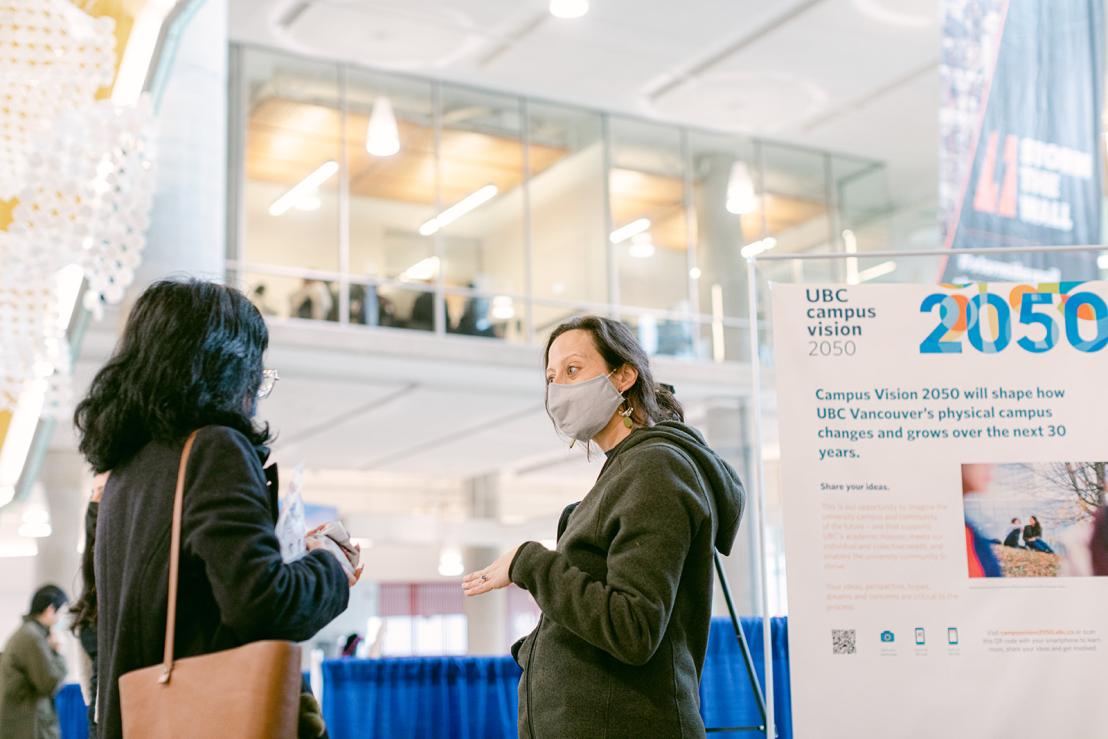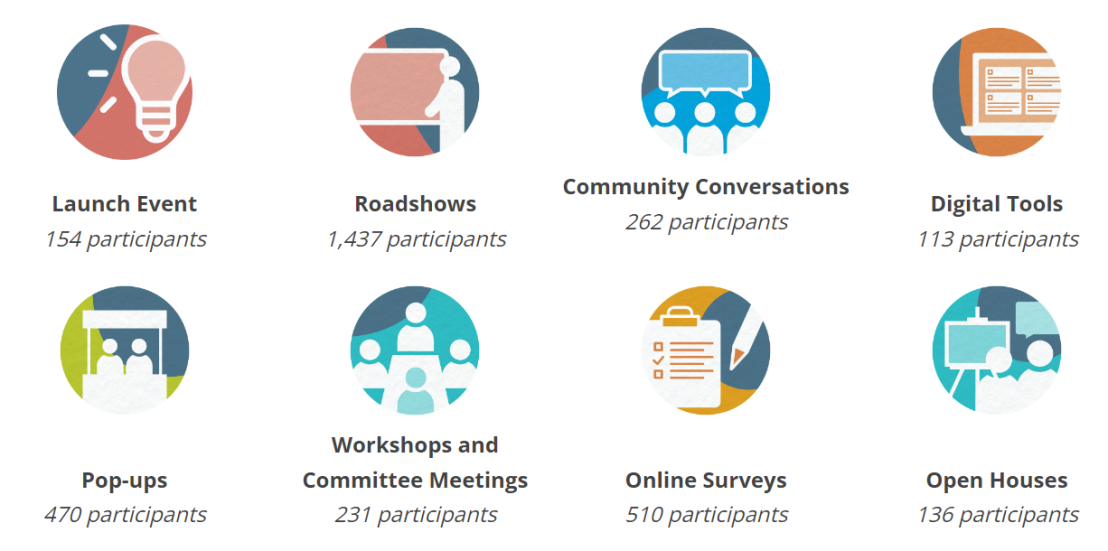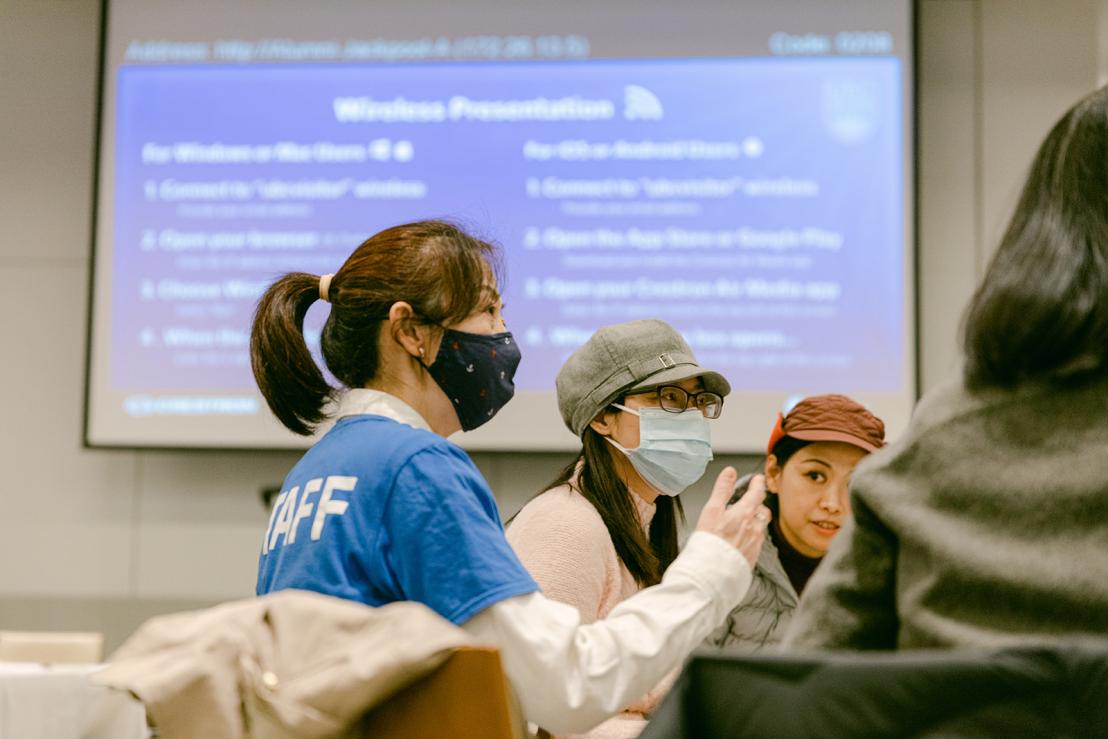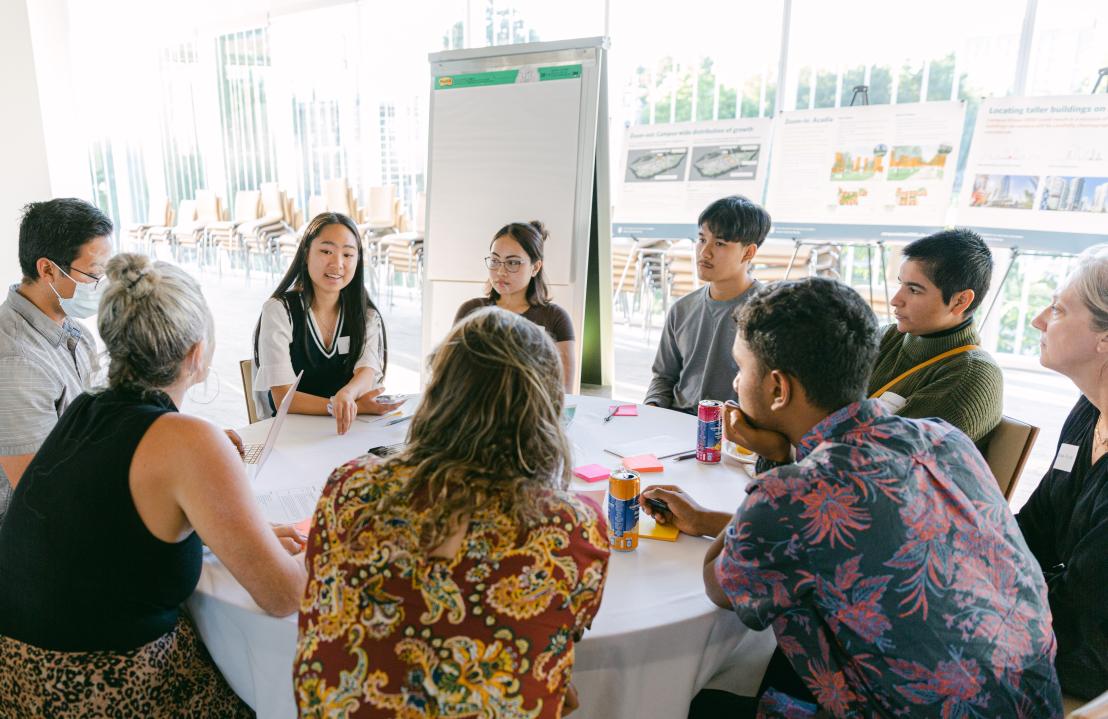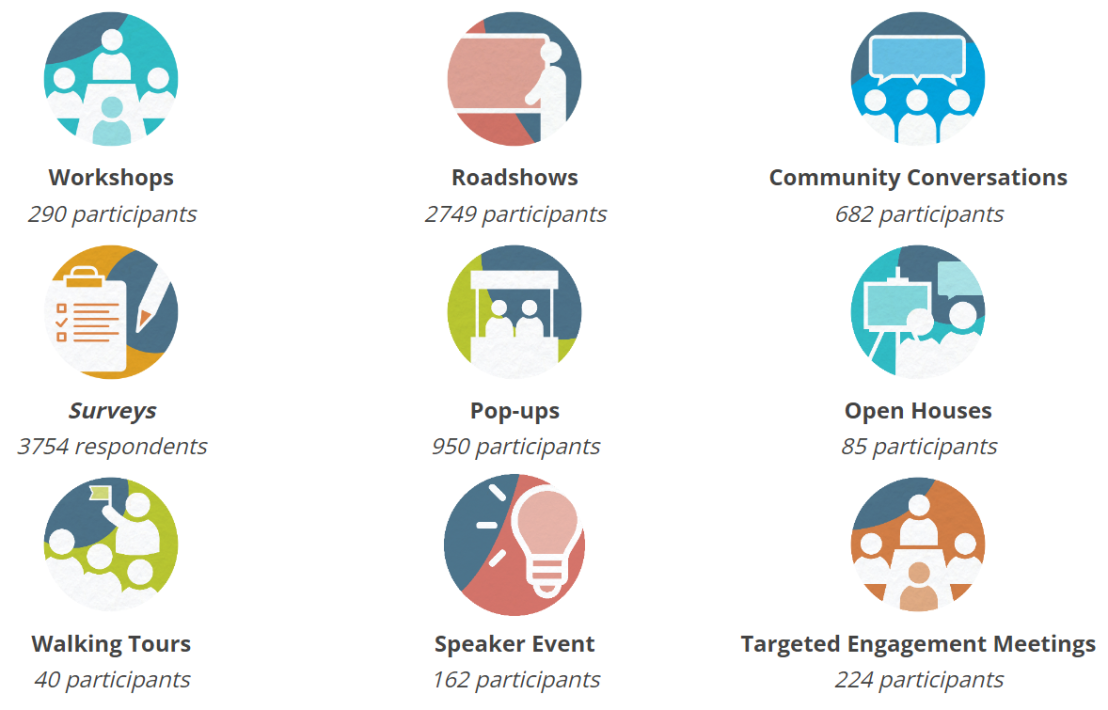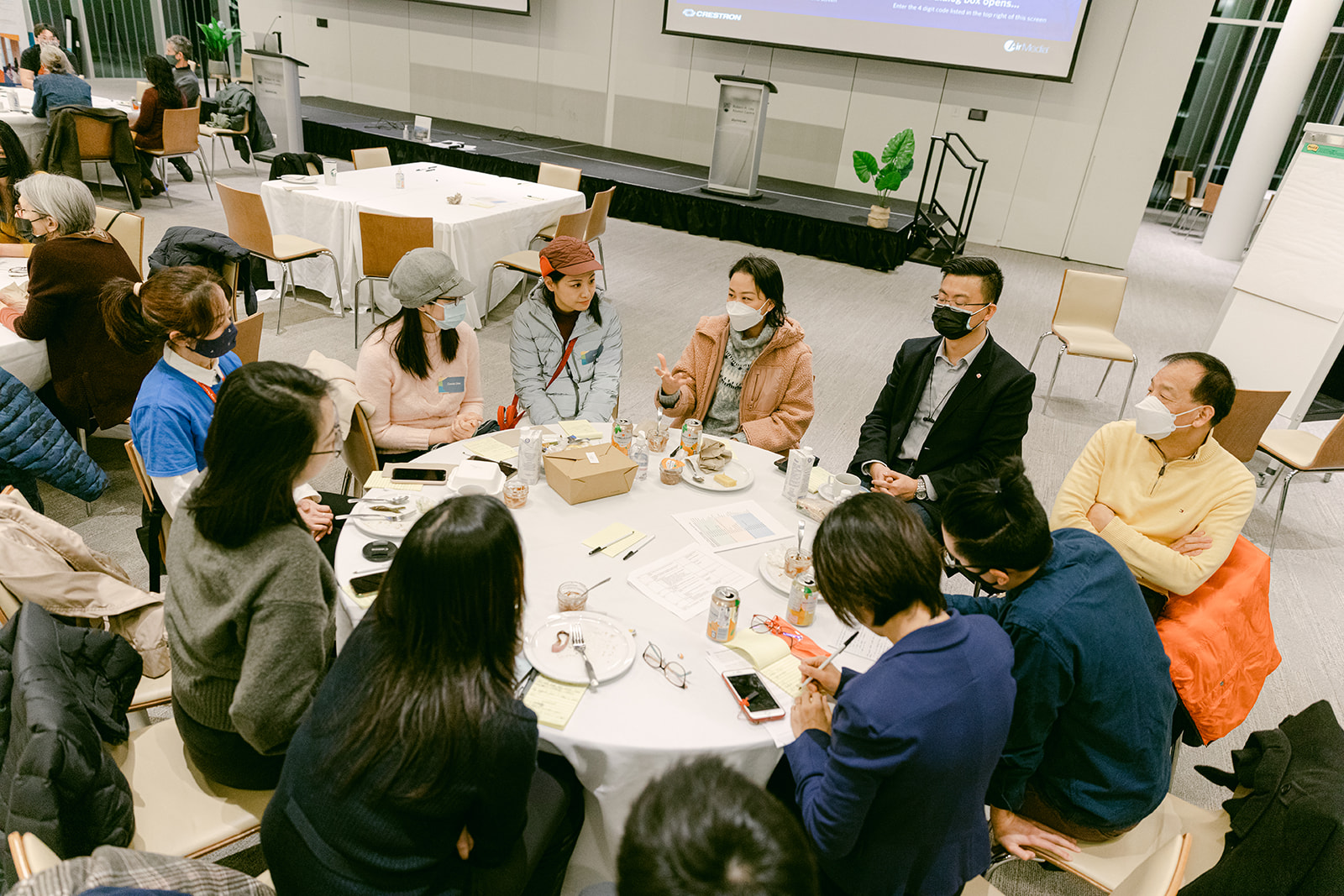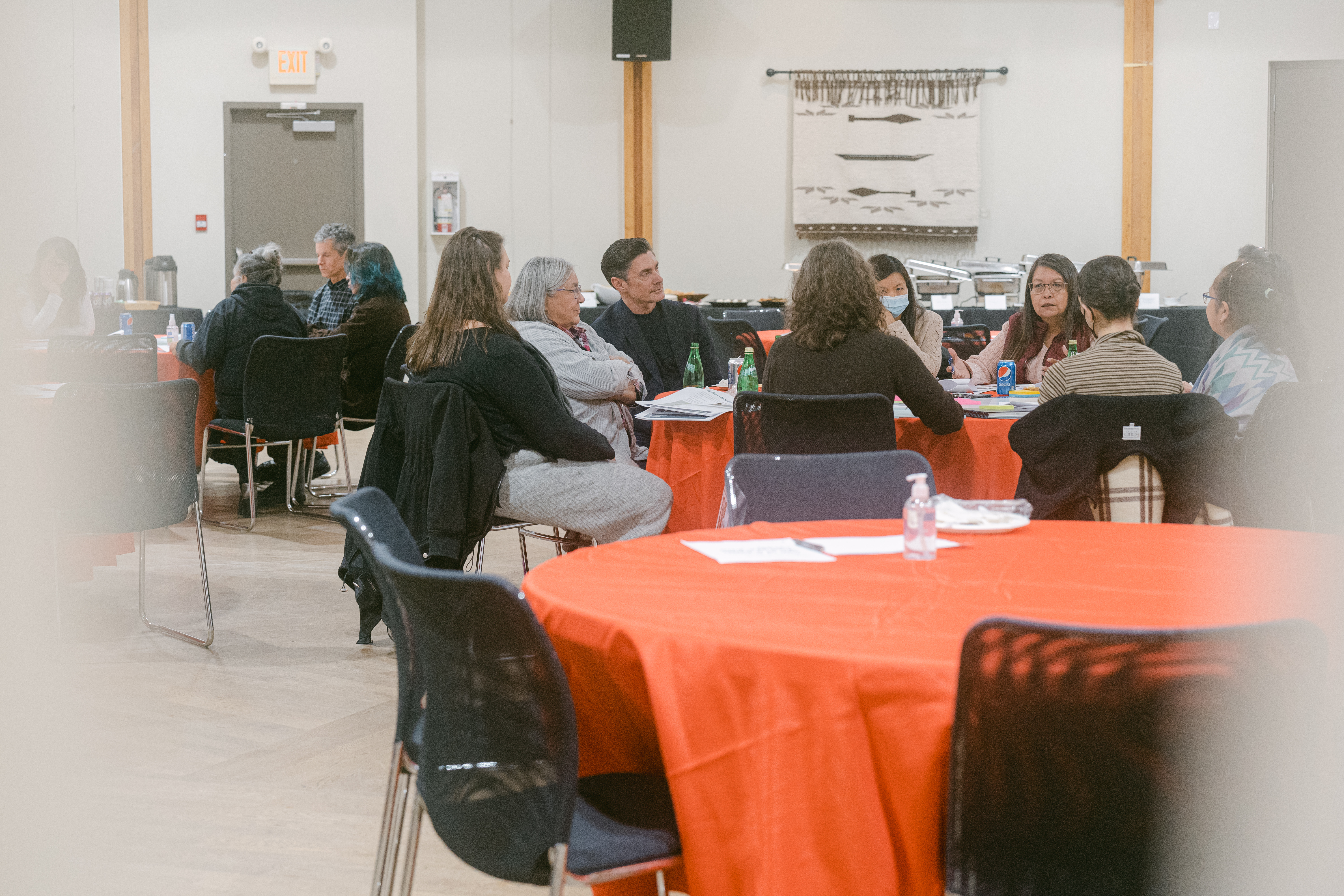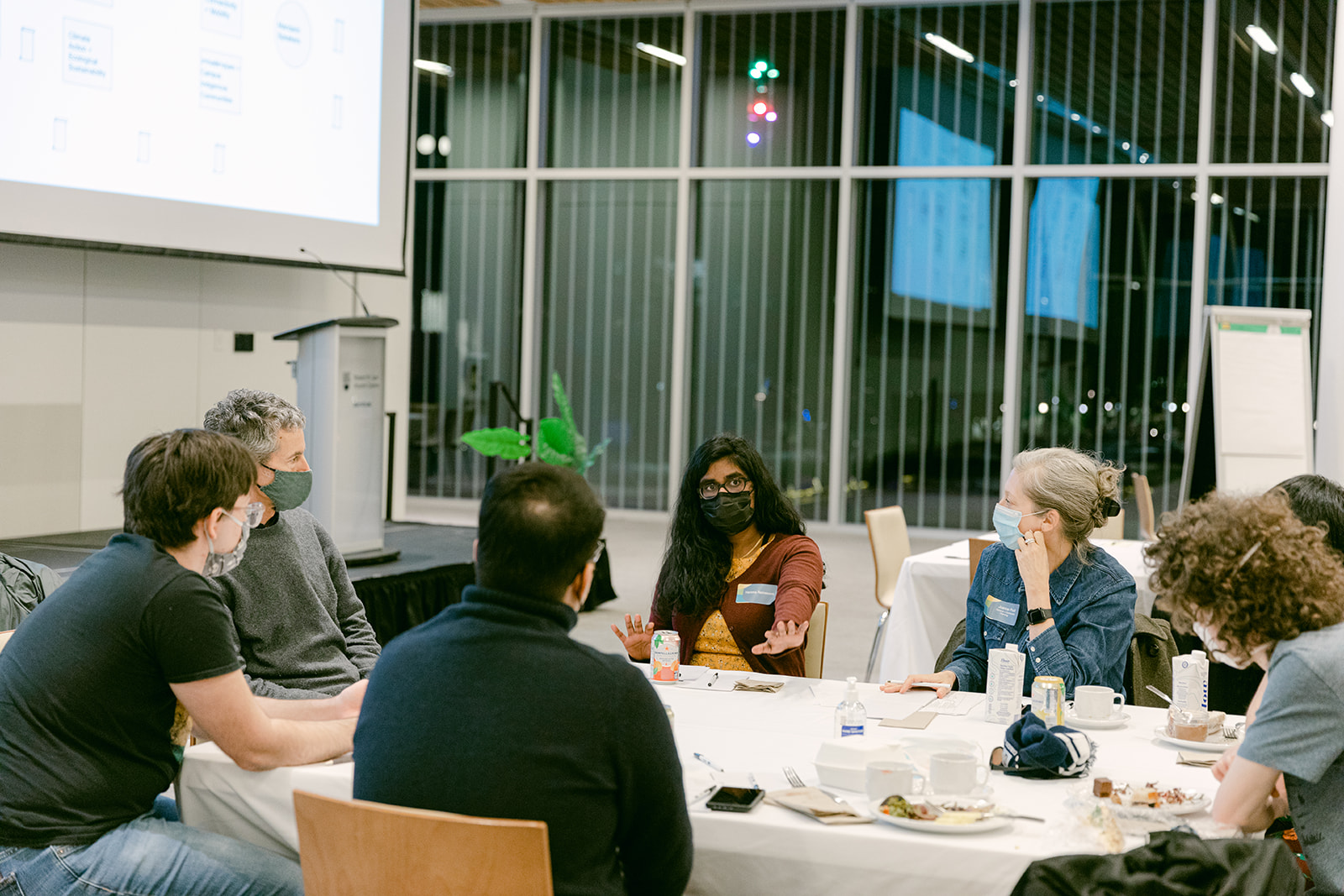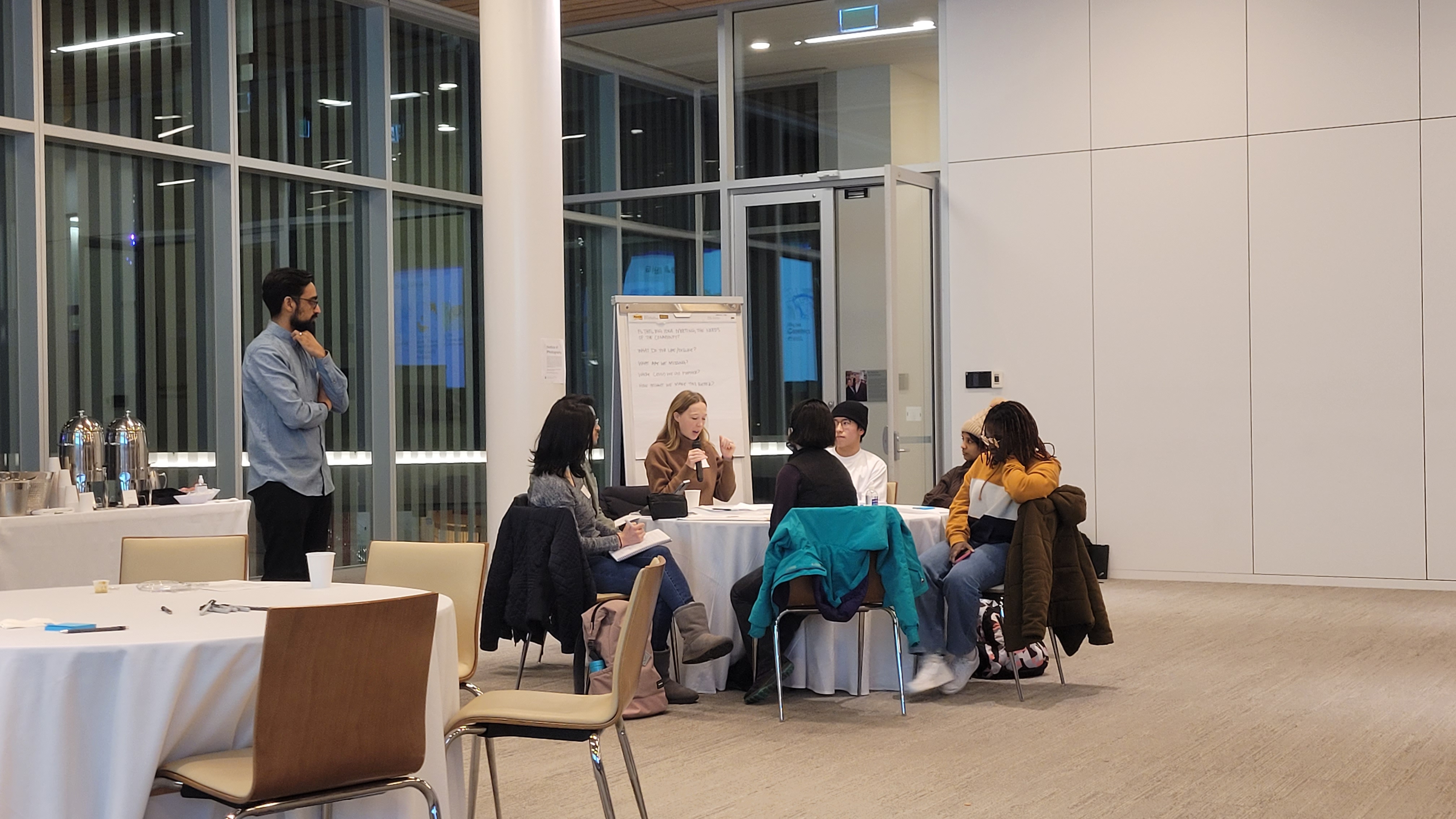Updated: July 25, 2024
Update
✅ Status: Adopted & Approved
The Province of BC has adopted an amended Land Use Plan for the UBC Vancouver campus, enabling the university to begin implementing the ideas and strategies developed with the community through Campus Vision 2050 - which along with the Housing Action Plan was approved by the UBC Board of Governors in December 2023.
About Campus Vision 2050
Campus Vision 2050 was a comprehensive, 2.5-year engagement and public planning process to develop long-range pans for how the University of British Columbia's Vancouver campus will change and grow to support the needs of the university, its students, faculty, residents, staff, and Musqueam. The Campus Vision 2050 process also included updates to two key policies - UBC's Land Use Plan and the Housing Action Plan.
Over 13,000 engagement touchpoints with students, faculty, residents, staff, alumni, and Musqueam helped shape the Vision.
Campus Vision Engagement Timeline
January 2022 - April 2022
Needs & Aspirations
- January - February: We sought to better understand the UBC community’s experience of the campus, as well as hopes and dreams for the future. We also asked for feedback on the eight themes that emerged from the pre-planning process.
- March - April: After incorporating university and community input, draft guiding principles and strategies were presented to the public for further feedback and refinement. The final guiding principles and strategies reflect this feedback and seek to address the challenges and opportunities identified through the entire Needs and Aspirations engagement period.
September 2022 - February 2023
Big Ideas, Choices, & Draft 30-Year Vision
- September - October 2022: We sought feedback on an initial set of five Big Ideas that would go on to form the major cross-cutting components of the Draft 30-Year Vision, as well as two development scenarios with different approaches to building heights, open space and mixing of academic and neighbourhood lands, and initial direction on updates to the Housing Action Plan.
- January - February 2023: We sought feedback on the Draft 30-Year Vision, anchored around six Big Ideas, as well as key proposed updates to Housing Action Plan and key recommendations for updating the Land Use Plan.
What We Heard
The Campus Vision 2050 public engagement process surfaced numerous challenges facing the community and the university, as well as opportunities where UBC’s land use planning can make a difference in the lives of students, faculty, residents, staff and Musqueam, and at the same time improve the overall ecology and biodiversity of the campus.
For a detailed look at What We Heard in each phase of engagement, download the Engagement Summary Report which can be found in our Documents & Resources Library.
Engagement Approach
The Campus Vision 2050 engagement approach builds on Campus + Community Planning's Engagement Charter, and includes fore-fronting principles of equity, diversity and inclusion, building trust, providing diverse ways to meaningfully engage and ensuring clear communication and transparency.
What Engagement Looked Like
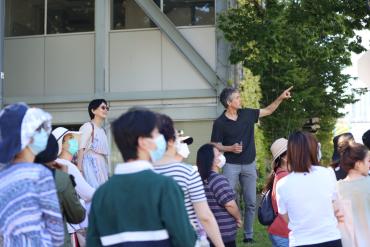
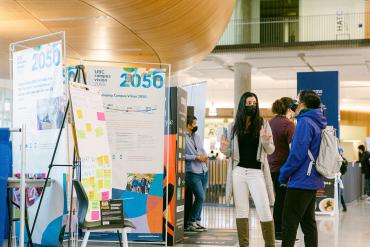
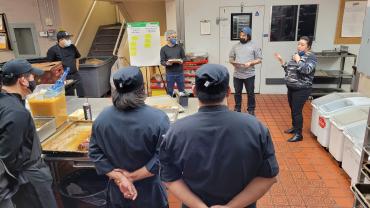
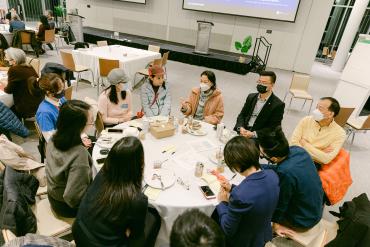
Land Use Plan & Housing Action Plan Updates
The long-term vision for the Vancouver campus was developed alongside updates to the Housing Action Plan, a Board-approved policy that guides how UBC uses its land and financial resources to meet the community’s housing needs on the Vancouver campus; and the Land Use Plan, a provincially-adopted document regulating campus development that enables implementation of the vision for the campus and the Housing Action Plan.
Contact Us
|

